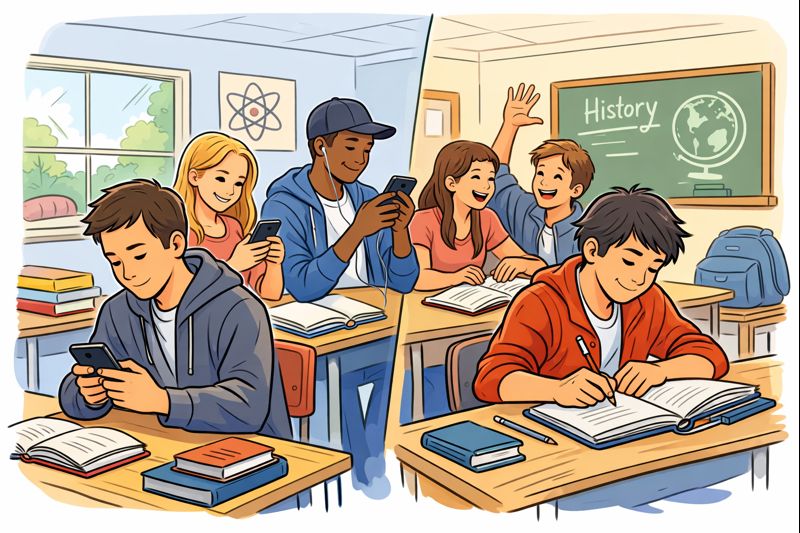The nature of the Self
In Rogers’ theory, the Self plays a central role in how congruence and incongruence develop. Understanding this concept helps explain both psychological distress and therapeutic change.
Carl Rogers uses the term Self to describe the set of perceptions a person holds about who they are. This includes views about personal traits, roles, values, abilities, and limits. The Self is not fixed as it develops through experience, especially through relationships with significant others. Over time, it becomes a reference point against which we judge new experiences.
Rogers distinguishes between experience and the Self. Experience refers to what a person feels, senses, and lives in the moment. The Self refers to what the person sees as “me” or “mine”. Problems arise when these two don’t match. If a feeling or impulse does not fit the Self, the person may use defence mechanisms to block it from their awareness completely or reshape it to protect their self-image. Whichever, this process creates incongruence.
For example, a person who sees themselves as calm and reasonable may find themselves in a situation where they feel intense anger. If this anger feels unacceptable, they may deny or try to re-label it; “I’m not angry, I am just frustrated/sad/surprised.” The experience still exists, but the Self won’t allow it in. Over time, repeated mismatches of this kind increase tension and anxiety. The person becomes less open to experience and more reliant on their defences. They are being ‘incongruent’.
Congruence develops when the Self becomes more open and flexible. The person can accept the things that they are experiencing (especially emotions and feelings) without distortion. This does not mean acting on every feeling but it does mean recognising their feelings accurately and integrating them into a more realistic sense of Self. As congruence increases, the Self becomes less rigid and more responsive to lived experience.
Rogers links this process to conditions of worth. When we believe that to be accepted by others depends on behaving in certain ways, in other words it is conditional, then the Self narrows (ie becomes less flexible) to try to protect the sense of approval.
On the other hand, when acceptance is experienced as being unconditional, the Self can expand and adapt. Therapy aims to recreate this climate so that the Self can reorganise in line with experience rather than against it.
The initial incongruence of the client
Carl Rogers used the term congruence in different ways across his writing, and these differences reflect a clear development in his thinking between 1951 and 1961.
In Client-Centred Therapy (1951), Rogers uses congruence mainly in relation to the client. He describes incongruence as a gap between lived experience and self-concept. A person may feel or act in ways that do not fit how they see themselves. To protect the self-concept, these experiences may be denied or distorted. Psychological distress develops from this lack of fit. In this early work, congruence implies internal alignment. Therapy aims to help the client become more aware of experience and revise the self-concept so that the two match more closely.
In this 1951 account, the therapist’s congruence plays a limited role. Rogers refers to genuineness, but the therapist remains largely in the background. The therapist provides conditions that allow change, rather than entering the relationship as a fully present person. Congruence is treated mainly as a client outcome rather than a therapist stance.
One later meaning – congruence as genuineness and authenticity
By On Becoming a Person (1961), Rogers’ focus has shifted. Congruence now firstly refers to the therapist’s way of being in the relationship. The therapist is no longer a neutral facilitator. Instead, the therapist’s presence becomes central to the process. Congruence means that the therapist is aware of their own feelings and does not present a false professional front. What the client encounters is a real person, not a role.
This doesn’t mean full self-disclosure. It means that what the therapist expresses is genuine and not defensive. Rogers places emphasis on moment-to-moment awareness and openness. In this sense, congruence becomes an ongoing process rather than an internal state. However, we can see that it begins to apply to both therapist and client.
The second later meaning – congruence as an essential quality of the therapeutic relationship
Rogers also makes clearer in 1961 that congruence cannot operate alone. It must exist alongside empathy and unconditional positive regard. Therapist ‘realness’ without care can feel intrusive. Care without self-awareness can feel strained. The three conditions depend on each other. Congruence supports empathy by helping the therapist remain in contact with their own inner state. It supports unconditional positive regard by grounding respect for the client in self-acceptance.
This second perspective extends congruence beyond the session – beyond the process. Rogers is implying that the therapist’s personal life and professional role need to be aligned. If there is a strong split between the therapist’s values and actions, then a tension will enter the work. Defensive habits will increase and the therapeutic contact between the two people will weaken. Congruence for the therapist therefore involves ongoing self-reflection and personal development, not just clinical skill (Rogers, 1961; Mearns & Thorne, 2013).
Later focus on the congruence of the therapist
In the 1951 position, congruence functions mainly as a client outcome. The client moves from incongruence towards greater alignment between experience, awareness, and self-concept. The therapist supports this process but does not stand under the same demand. The therapist provides conditions rather than undergoing the same task.
By 1961, Rogers is no longer treating the therapist as exempt from the process he describes. When he writes of the therapist being real, open, and without a false front, he is applying the same principle of congruence to the therapist that he earlier applied to the client. There are differences in role and responsibility, but not in the need for personal development.
Rogers is implying that the therapist’s effectiveness depends in part on the same movement the client is asked to make – towards awareness, acceptance, and integration of experience.
Of course, the therapist does not work through personal conflict in the client’s session. The direction of travel is the same, but it is not unreasonable to expect the therapist to be some way further along the journey. Both are engaged in the task of reducing internal splits so that experience can be met more directly.
This explains why later person-centred writers place such emphasis on the therapist’s ongoing personal development. Congruence is not treated as a qualification that one attains. It is treated as a continuing process. The therapist’s personal work supports their professional presence in the same way that the client’s growing congruence supports psychological health.


